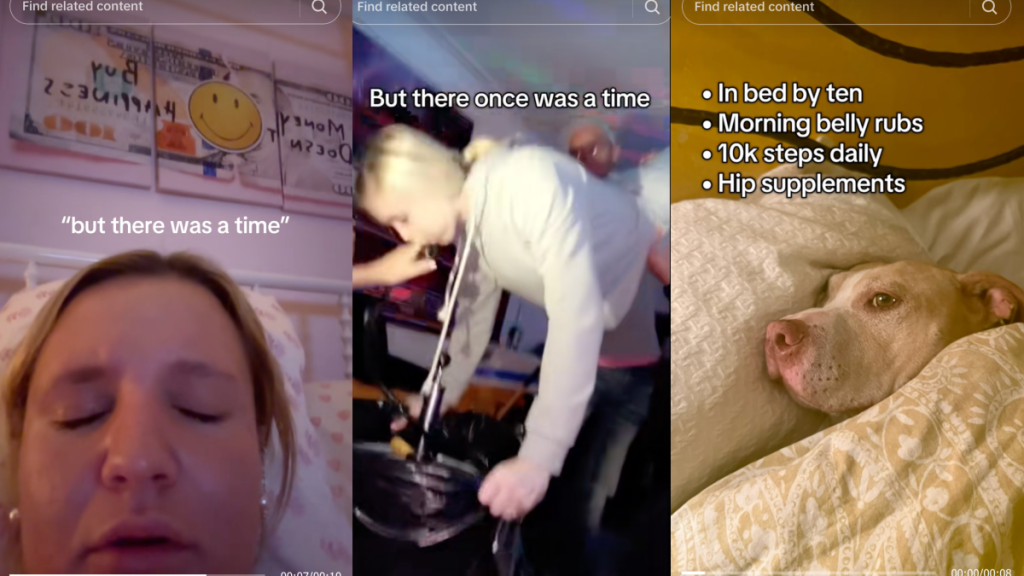A wave of nostalgia has swept across TikTok, with users worldwide embracing the “there was a time” trend to reflect on personal transformations, past passions, and life’s unpredictable journey. The format, characterized by its three-step structure, invites creators to juxtapose their current realities with earlier chapters of their lives, often revealing stark contrasts between who they were and who they’ve become.
In many posts, parents clad in office attire or shown balancing household responsibilities flash back to their younger selves dancing at concerts or attending late-night parties. These viral clips underscore a universal narrative of settling into adulthood while acknowledging a relinquished spontaneity. Yet the trend extends far beyond reminiscing about wilder days. Athletes share montages of past triumphs, such as hockey players wistfully recalling championship moments, while others document career shifts—former teachers turned entrepreneurs or ex-baristas pursuing creative ventures. Pet owners join in, humorously contrasting their dogs’ puppy mischief with current senior naptime habits.
Not all entries lean into levity. Some creators adopt a somber tone, memorializing lost loved ones or fractured relationships through faded photos and subdued voiceovers. A clip might show an empty chair at a dinner table, cut with laughter-filled clips of a late family member, encapsulating grief’s duality. This emotional breadth has resonated globally, with videos tagged #ThereWasATime amassing billions of views.
Analysts attribute the trend’s appeal to its simplicity and relatability. “It mirrors how people naturally reflect on their lives,” noted a Mashable Trend Report analysis, highlighting its adaptability across cultures and age groups. The trend also taps into TikTok’s role as a digital time capsule, where users archive milestones and mundane moments alike. While the platform often prioritizes fleeting content, this format encourages purposeful storytelling, allowing glimpses into vulnerabilities and triumphs seldom showcased in polished feeds.
Demographic divides emerge subtly: millennials often post about transitions into parenthood or corporate careers, while Gen Z creators humorously lament abandoning teenage hobbies like emo music phases. Regardless of age, participants share a common thread—the recognition that identity evolves, sometimes in ways that surprise even the storytellers.
Beyond individual narratives, the trend underscores social media’s shifting role in documenting personal growth. Unlike curated “before and after” fitness or beauty challenges, this trend avoids self-improvement metrics, instead framing change as inevitable and multifaceted. For viewers, these 30-second snippets offer both solace and solidarity, a reminder that transformations—whether joyful, bittersweet, or absurd—bind us in shared humanity. As one commenter noted on a post about abandoned artistic dreams: “Time doesn’t just change us; it layers us.”
